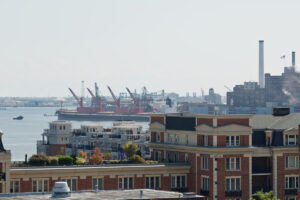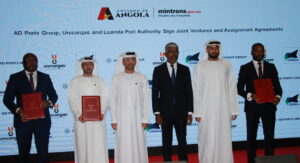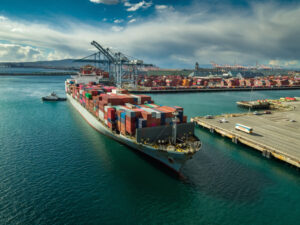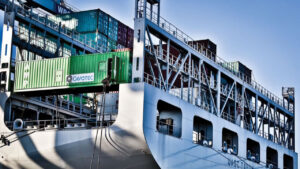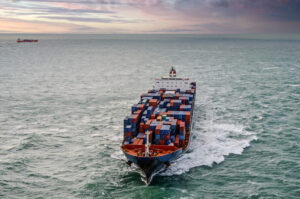Paper-based port call reports continue to burden ship operators and agents, increasing cost, delays impacting vessel emission output, and reducing the competitiveness of maritime transport.
According to a new report launched by the European Environmental Agency (EEA), submitting reports when arriving and departing a port continues to be a long-standing problem.
The European Maritime Transport Environmental Report 2021 highlighted that port operation can reduce environmental impact through port call optimisation – by facilitating just-in-time arrival to eliminate waiting times in a port by giving early notice of berth availability.
“Port call optimisation is not only related to the ‘ship-to-port’ communication but also seeks to improve hinterland connections and ultimately the entire logistical chain,” the report wrote.
“A port call is a particularly important event and a potential bottleneck in the entire chain. The benefits of ‘just-in-time’ arrival in terms of emission savings would potentially be significant, as it would allow smart routing and steaming.”
One way a port can facilitate faster berthing and departing is through increased paperless data exchange, the report found.
“Furthermore, a longstanding problem in the industry is the complexity of and time involved in submitting reports when arriving in and departing from ports,” said the report.
“Ship operators, masters, and agents are still burdened with having to fill in paper documents and distribute these to various government authorities, including port, maritime, safety, security, customs, border control, and health authorities. This increases costs and causes delays, reducing the competitiveness of maritime transport.”
The report highlighted the IMO’s efforts to harmonise the digital data exchange required during a port call by standardising electronic messages on the exchange of ship-to-shore information.
Maja Markovčić Kostelac, Executive Director of the European Maritime Safety Agency (EMSA), commented, “Innovation-driven sustainability is an opportunity for shipping to complete a transformation on the same scale as the replacement of sails by steam.
“This new maritime revolution will depend on ships developed through advanced technology and digital solutions, but also on a multi-layered, fully inclusive process at national, European and international level that encompasses safety, security and social aspects as well as environmental ones. But crucial too is shipping’s role as a link in a transnational logistics chain.
“This means that every part of that chain – from ports to the shipbuilding sector, from shippers to the private and public financial sectors – must be included in our drive towards sustainability.”
EU Member States have also developed their own national single windows (NSWs) linked to SafeSeaNet, e-Customs and other electronic systems.
The report found that approximately 18% of all carbon emissions from maritime transport were from ships calling at EU and European Economic Area ports.
In 2019, sulphur dioxide (SO2) emissions from ships calling in European ports amounted to around 1.63 million tonnes, approximately 16% of the global SO2 emissions from international shipping.
To alleviate, in addition to increased digitalised information exchange, improved cargo handling, offering Onshore Power Supply (OPS), and Liquefied Natural Gas (LNG) bunkering facilities can reduce emissions of vessels frequenting a European port.
On OPS, facilities should be installed as a priority in the TEN-T core network ports, and in other ports by 31 December 2025 – unless there is no demand and costs are proportionate to benefits including environmental benefits.
Based on information from the European Alternative Fuel Observatory (EAFO) there are currently 36 OPS facilities.


